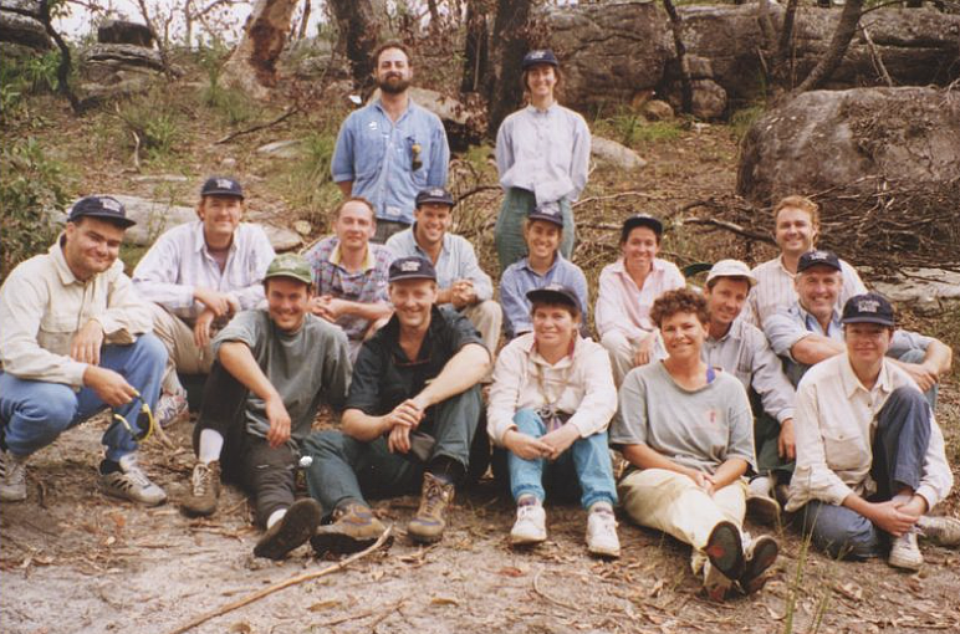
ICDA and BoardPro partnership unlocks digital governance tools for not-for-profits nationwide
Posted on 10 Dec 2025
Adele Stowe-Lindner, Executive Director, Community Directors The Institute of Community Directors…
Posted on 17 May 2023
By Greg Thom, journalist, Our Community

Reversing the slide in volunteer numbers, reducing red tape, addressing cyber security threats to the sector and grappling with the challenge of effectively managing crypto currency donations are just some of the key priorities being tackled by Australia’s national charities regulator.
Australian Charities and Not-for-profits Commission chief Sue Woodward also said NFPs need to become more agile, exploring new ways to deliver services while effectively managing staff amid widespread economic challenges.
“[There are] cost of living pressures that affect both NFP organisations but also cost of living pressures of those people you might be supporting,” the Commissioner told attendees from across the sector during a keynote speech at the recent Connecting Up conference in Melbourne.
“It’s a double whammy.”
The Commissioner also shared key data from the upcoming 9th edition of the annual Charities Report, due to be released in June.
Among the findings from the ACNC 2021 Annual Information Statement reporting period:
The significant decline in volunteer numbers is an issue highlighted previously by Our Community and is currently being addressed via the National Strategy for Volunteering.
“We know there has been a decline in volunteering and [we need to look at] how we get those volunteers back,” said Ms Woodward.
Help sheet: How to build your volunteer support base
Mounting a response to the volunteer crisis, a guide for directors and leaders
Dealing with volunteers during COVID-19
Fourteen ways to thank your volunteers
For the last word on volunteering, visit the website of Volunteering Australia or your state or territory’s peak volunteering body.
Justice Connect and their NFP Law service also has a stack of online resources related to volunteer help.
Tap here for their useful volunteer Q&A | National Volunteer Guide | Template volunteer agreement & Free webinar | template confidentiality & intellectual property deed | national youth volunteer fact sheet
Our Policy Bank: Volunteer Management Policy | Employees & volunteers induction policy
Q&A: Aon answers some volunteer insurance questions
------
The Commissioner indicated the increasingly sophisticated data analysis being employed at the ACNC is being used to support the work of the Productivity Commission’s inquiry into philanthropy.

The ACNC last year upgraded its Charity Register by adopting Our Community’s social sector classification system, CLASSIE.
The CLASSIE taxonomy, which is also used on Our Community’s SmartyGrants platform, allows people to search by activity type, location, who each charity helps, and registration status.
“We’ve also done some extra work this time on the grantmaking side of the data and we’ve got to draw that out,” said Ms Woodward.
“So there’ll be a bit of a feature on that in the next edition of the Charities Report.”
Reflecting on her first four months in the job, Ms Woodward revealed she was excited to be back at the ACNC after seven years and had returned with an open mind.
“I have met with the 113 staff one-on-one, and I did that because I think the staff are the most important thing in any organisation and I really wanted to get an idea of who is at the ACNC now,” she said.
“I haven’t made any assumptions that just because I worked there seven years ago, I really know what it’s all about.”
Ms Woodward said many of the foundations laid down during her previous tenure, however, had remained in place.
“I feel that the staff are very energised and very excited about having a permanent person now in the role and on board about what we do in our next decade, which is really encouraging for me to know.”
Ms Woodward said she had also been busy speaking to state and territory regulators and Commonwealth agencies and has reached out to international regulators.
“I think apart from introducing myself, I’ve really tried to understand what their priorities are and I’m looking for opportunities where the ACNC can continue to support red tape reduction.”
It was in this context the ACNC welcomed the recent announcement that Australian, state and territory treasurers have agreed to a set of nationally consistent fundraising principles.
“I think that’s a really critical one now and I’m really pleased to be on the inside of the ACNC because I can make sure that we do everything we can to help that actually be implemented.”
Ms Woodward said building public trust and confidence was key to addressing some of the challenges currently facing the sector.
One example of this approach is the $2.9 million allocated in the federal budget over the next four years to boost "transparency and accountability" in the charity sector by enabling increased disclosure of the ACNC's regulatory activities.
“I think if we maintain or improve public trust and confidence then you’ll get the volunteers, you’ll get the donations and that will help you be independent and sustainable,” she said.
Despite the complex environment and issues facing NFPs, Ms Woodward said there were as many opportunities as challenges in the years ahead.
“I’m excited about the opportunity to have the ACNC become a regulator that helps maintain and grow public trust and confidence in Australian charities,” she said.
“A regulator that supports innovation in Australian charities and a world class regulator.
“No doubt, there’s more surprises for me, but I am very committed to that vision and I’ll be looking very much to the continued support and engagement of the sector to achieve it.”

Posted on 10 Dec 2025
Adele Stowe-Lindner, Executive Director, Community Directors The Institute of Community Directors…

Posted on 10 Dec 2025
The Australia Institute has called on the federal government to force Australian businesses to be…

Posted on 10 Dec 2025
Economic empowerment is essential to enabling recovery, restoring agency and preventing future…
Posted on 10 Dec 2025
A long-time advocate for rough sleepers in northern New South Wales has been named her state’s…

Posted on 10 Dec 2025
What a year 2025 has been, particularly at a national level where the Parliament and politics as we…

Posted on 10 Dec 2025
Anyone working in an organisation knows it: meetings follow one after another at a frantic pace. On…

Posted on 10 Dec 2025
As a qualified yoga instructor who learned the practice in her hometown of Mumbai, Ruhee Meghani…

Posted on 10 Dec 2025
Community Directors trainer Jon Staley knows from first-hand experience the cost of ignoring…

Posted on 10 Dec 2025
Stressed, overwhelmed, exhausted… if you’re on a not-for-profit board and these words sound…

Posted on 10 Dec 2025
The Institute of Community Directors Australia trains over 22,000 people each year, which gives us…

Posted on 09 Dec 2025
The late Sir Vincent Fairfax is remembered as a business leader, a chairman of AMP, and an active…

Posted on 08 Dec 2025
A pioneering welfare effort that helps solo mums into self-employment, a First Nations-led impact…